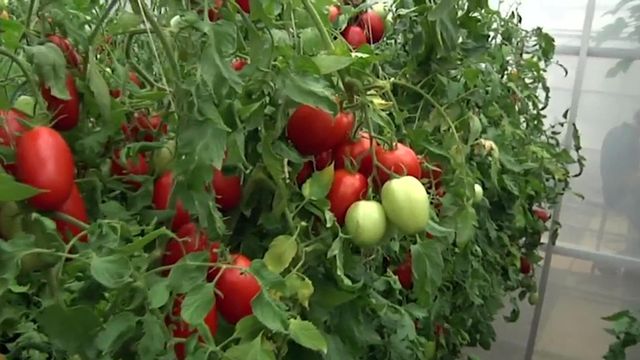NCSU, SAS team up to halt food-borne illnesses, help farmers
The Centers for Disease Control and Prevention estimate that 31 food-borne diseases are responsible for nearly 10 million human illnesses a year in the U.S. alone, with unidentified agents in food causing another 38 million illnesses.
The North Carolina Plant Sciences Initiative at North Carolina State University is working to reduce those numbers by joining forces with Cary-based SAS Institute and Microsoft for more in-depth analytics.
"We live in an age of data, and that’s no exception for the world of agriculture," said Ralph Dean, William Neal Reynolds Distinguished Professor of plant pathology at N.C. State. "SAS has long been an integral part of what we do here at N.C. State. They have a tremendous suite of analytic tools. Microsoft brings to this relationship the world of cloud computing where we can store vast amount of data."
With the help of analytics and data-sharing technology, N.C. State hopes to find new ways to produce healthy, safe and sustainable food.
"The goals are to improve crop production, produce more crops efficiently and cheaper," Dean said. "That involves many different things. It involves sustainability, the ability to grow crops using less resources and to prevent various stresses such as plant diseases."
"Applying technology to the challenges that farmers face in producing food is key," said Bill Danker, an industry consultant with SAS.
Not only are researchers trying to weed out food-borne illness before the product is harvested, they're also hoping to have a system in place to detect diseases before the food is distributed.
"Early detection is key for food security and food safety," Dean said.
Along with their efforts to reduce food recalls, they hope the technology will also tackle major challenges farmers face and create a more sustainable way to produce food.
"One of the projects that we’re working on is to develop new sensor technology and get them deployed so they can record data from fields and give us an early warning system for disease," Dean said. "Having new tools to monitor the environment, to monitor the weather conditions, to monitor plant stress is very important when you live in a dynamic area."
"You’ve got climate change out there. You’ve got the challenges of generating enough food," Danker said. "Anything that we can bring to bear to address some of those challenges, to improve the quality of the food our farmers are producing, the quality of the processing and really inhibit some of those diseases and pathogens from making it to through the food supply, it does nothing but help everyone."










